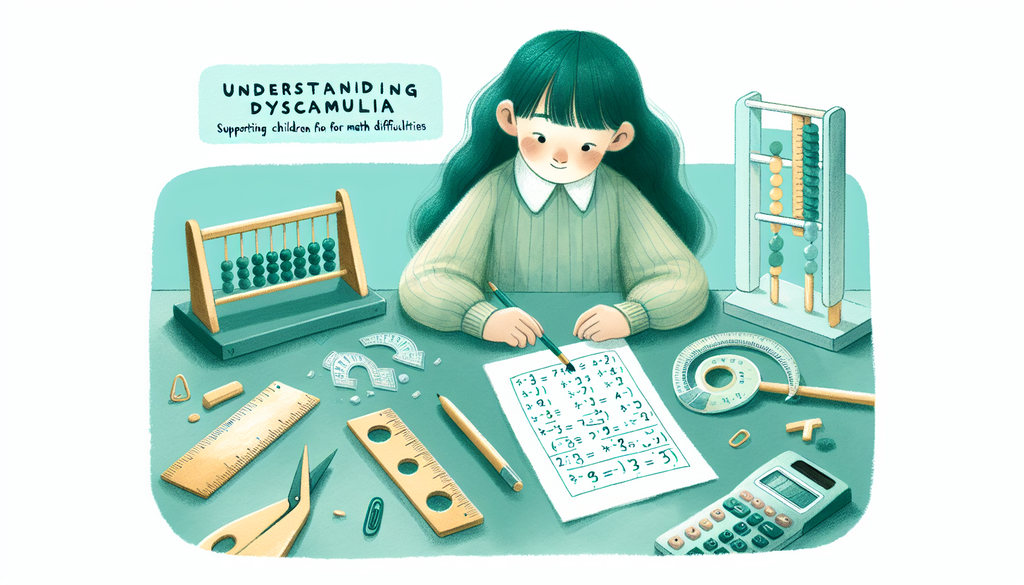Understanding Dyscalculia: Supporting Children with Math Difficulties

Math is a universal language used to make sense of the world around us. But for children struggling with dyscalculia, a math learning disability, understanding this language can be tremendously challenging. This post aims to unveil the dynamic of dyscalculia and offer actionable tips for parents and educators supporting children facing this issue.
What is Dyscalculia?
Dyscalculia is a learning disorder associated with difficulty grasping foundational numeracy skills, understanding math concepts, performing accurate math calculations, and problem-solving. It often presents itself from a young age and persists into adulthood if not addressed.
Signs of Dyscalculia
Children with dyscalculia may display a number of signs. They may have difficulty learning to count, understanding mathematical symbols, recognizing number patterns, or doing mental calculations. They might struggle with everyday tasks that involve numbers, like telling time or making change.
How to Support a Child with Dyscalculia
Supporting a child with dyscalculia often means taking a creative and individualized approach to teaching math. Here are a few strategies that can help:
-
Use concrete examples: Children with dyscalculia might can benefit from seeing mathematical problems played out with physical items or visuals. This method also works well with kinesthetic learners.
-
Create a supportive environment: Building a comfort zone around learning math can boost the confidence of children with dyscalculia. Positive reinforcement, patience, and an understanding, non-judgmental environment that can help kids become more willing to engage with math.
-
Use assistive technology: Several apps and software help children practice math in an engaging way and at their own pace.
-
Professional help and therapies: Sometimes, dyscalculia can be most effectively managed through professional aid. Education therapists and specialists can provide targeted techniques and strategies for overcoming math difficulties.
Remember, early identification is key to effectively manage dyscalculia or any other learning challenge. Moreover, patience, understanding, and a strategy tailored to your child’s needs can serve as vital tools.
If you’re interested in learning about more resources for special needs, check out our discussion on costs relating to special education needs, along with tips on building resilience in children and preparing for puberty.
Ultimately, it’s important to create a learning environment where challenges are acknowledged and worked on positively. Each child’s learning journey is unique, and their unique strengths should be celebrated. Should you notice your child exhibiting symptoms of dyscalculia or other learning issues, don’t hesitate to seek professional advice to ensure they receive the right support.